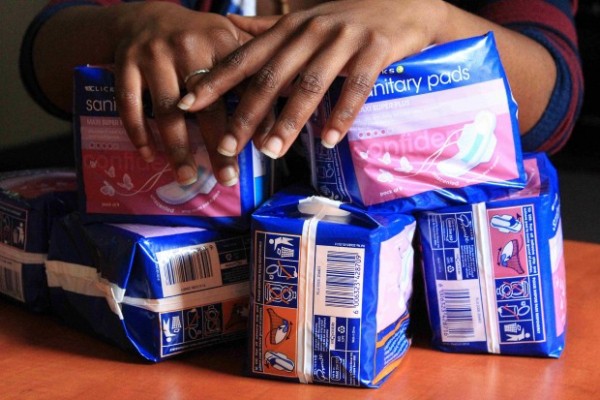Seven years on, Zuma’s promise of free sanitary pads has not been kept
But the Department of Women has a plan
Seven years after President Jacob Zuma promised free sanitary pads for poor women and girls, not much progress has been made.
Zuma told ANC supporters during the 8 January celebrations of the ANC’s 99th anniversary at Peter Mokaba Stadium in Polokwane, Limpopo, in 2011 that sanitary towels would be available soon.
He said the government would launch a free sanitary towels campaign in an effort to help those who cannot afford them. He reiterated this promise a month later in his State of the Nation Address.
Asked to describe progress with the campaign, Sipiwo Matshoba, chief director for Social Transformation and Economic Empowerment in the Department of Women in the Presidency, told GroundUp that sanitary pad were being distributed in places of safety and orphanages by the Department of Social Development; in prisons by the Department of Correctional Services, and hospitals and mental institutions by the Department of Health. Provincial departments had also been involved, “to a very big extent as well, in their own varying ways”.
But, he said, “it is also equally true to state that the process has had its own share of challenges”.
Listing these, he said:
- there were no national norms, standards and values;
- there was no specific funding in provinces and departments and no proper costing had been done by most provinces;
- there were many sanitary products in the market, some which “might be harmful” and the South African Bureau of Standards would have to intervene;
- there were no standard criteria for defining who was indigent; and
- there was insufficient monitoring and evaluation.
“It is in that context that the Department of Women has developed a draft National Implementation Framework which is currently being considered by Cabinet since October 2017,” said Matshoba. “It is hoped that this would set out norms and standards, criteria, eligibility, mode of delivery, costing, production and manufacturing, storage, distribution, disposal, monitoring and evaluation mechanisms.”
This would also trigger business opportunities for young women and black businesses, he said.
Meanwhile, on the ground, several organisations are doing their bit to provide sanitary pads to those who cannot afford them.
Unemployed Gugulethu resident Philani Ngwenya is one of nine people who have taken it upon themselves to make sure that girls in townships and orphanages who cannot afford to buy them have sanitary pads each month. They provide care packs with two packets of sanitary pads and a box of toothpaste.
Ngwenya said he had posted on Facebook asking for help donating sanitary pads and the response had been “overwhelming”.
“Everyone wanted to help,” he said.
The Girl Child Movement campaign of the Children’s Movement, which works with girls aged from seven to 14 years at about 19 schools, ran a pilot project supplying sanitary pads at a Cape Town primary school. Now the organisation has partnered with a manufacturer and is making and supplying reusable and washable sanitary towels in schools, says the Children’s Movement’s Josephine de Klerk.
Support independent journalism
Donate using Payfast

Next: Scathing judgment against Ekurhuleni municipality for 17-year housing delay
Previous: In photos: Protests and violence at Afrikaans high school
© 2018 GroundUp. 
This article is licensed under a Creative Commons Attribution-NoDerivatives 4.0 International License.
You may republish this article, so long as you credit the authors and GroundUp, and do not change the text. Please include a link back to the original article.

